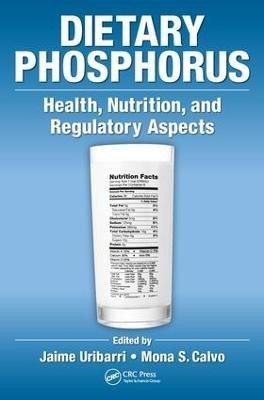Dietary Phosphorus(English, Hardcover, unknown)
Quick Overview
Product Price Comparison
Phosphorus is an essential nutrient that occurs in almost all foods and is important for many normal physiological functions. In a typical Western diet, it is not harmful, but does adversely affect tissues in the body when consumed in excess or deficiency. This book provides a comprehensive review of various aspects of phosphorus in relation to human nutritional needs. Sections cover phosphorus nutrition and dietary issues; health risks associated with excess phosphorus intake that exceeds requirements; phosphorus intake in populations at risk; regulatory challenges and policy approaches; and environmental impacts of phosphates in the modern food supply. This book challenges the long held ideas that high dietary phosphorus intake beyond nutritional requirements is safe and the natural supply of phosphorus critical to agricultural and human food production is endless. Controversy surrounds the claim that largely unrestricted use of phosphorus in all aspects of food production from farm to fork increases dietary phosphorus intake and irretrievable environmental loss, both of which harm human and environmental health. The book editors have joined together experts in basic, medical, environmental, nutritional, and food science to explore the validity of these claims of harm from high intakes and the unchecked use of phosphorus in the global food supply. Despite the essential need for adequate phosphorus over all stages of plant, animal and human life, the growing evidence points to a worldwide increase in dietary phosphorus intake far beyond nutrient requirements, significant association with chronic disease risk even when renal function is not compromised, and the increase in environmental loss with crop run-off, animal husbandry, and unretrieved phosphorus from human waste. This current evidence alludes to a depleted, unsustainable natural supply of phosphorus, hazardous environmental pollution of lakes and waterways, and significant increases in the risk of kidney, skeletal, and other serious illnesses in humans in the future if action is not taken now.


